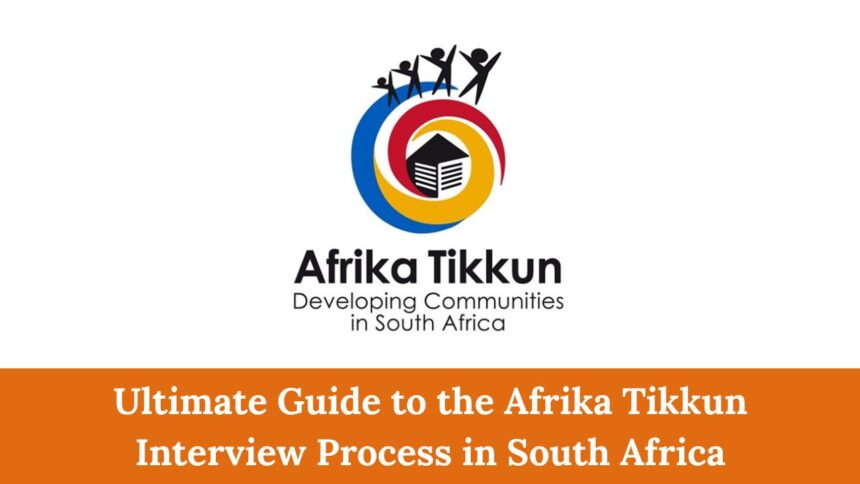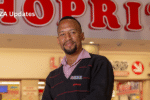Ultimate Guide to the Afrika Tikkun Interview Process in South Africa. If you’re passionate about youth development, community upliftment, and making a lasting impact in South Africa, then Afrika Tikkun might be the perfect place for you. As one of the leading non-profit organisations in the country, Afrika Tikkun is renowned for transforming lives by investing in the holistic development of young people from under-resourced communities.
Why Afrika Tikkun?
Before diving into the interview process, it’s crucial to understand what makes Afrika Tikkun unique. With a mission rooted in empowerment, education, and employment, the organisation runs several programmes aimed at nurturing South Africa’s youth into future leaders.
Working with Afrika Tikkun means you’re not just filling a job – you’re becoming part of a greater cause. This is an organisation that actively works to reduce inequality and build sustainable futures, particularly in previously disadvantaged communities like Alexandra, Diepsloot, and the Cape Flats.
Afrika Tikkun Interview Process
1. Application Submission
The journey begins with submitting your application via the official Afrika Tikkun website or reputable South African job portals. Ensure that your CV is professionally written, updated, and tailored specifically to the role you’re applying for.
2. Initial Screening
Once your application is received, the HR team will assess whether your qualifications and experience align with the job requirements. If shortlisted, you’ll be contacted for a preliminary screening, which may be a brief phone call or an email questionnaire to verify your interest, availability, and suitability.
3. Interview Rounds
Depending on the complexity of the role, you may undergo several interview stages:
First Interview
Usually conducted by a panel or hiring manager, this round assesses your background, motivation, and understanding of Afrika Tikkun’s values. Expect questions such as:
- “Why do you want to work with Afrika Tikkun?”
- “How do your values align with our mission?”
- “What is your experience working in communities?”
Second Interview
This session delves deeper into your technical skills and how well they match the job description. It may involve situational questions or require you to present a mini case study, especially for programme or project management roles.
Assessment or Task-Based Interviews
Certain roles may require a practical assessment. For instance, if you’re applying for a training coordinator or youth facilitator role, you may be asked to deliver a short presentation or solve a problem scenario.
4. Final Selection and Offer
Once interviews and assessments are complete, the top candidates are reviewed. If successful, you’ll receive a formal job offer. In some cases, feedback is also shared with unsuccessful applicants to support future job-seeking efforts.
Common Afrika Tikkun Interview Questions
To help you prepare, here are some frequently asked questions during Afrika Tikkun interviews:
Personal & Motivational Questions
- “Tell us more about your background and upbringing.”
- “What drives you to work in community development?”
- “Who inspires you, and why?”
Role-Specific Questions
- “What skills make you the best candidate for this role?”
- “Have you led a youth project before? Tell us about it.”
- “How do you plan and manage your workload effectively?”
Situational & Behavioural Questions
- “Share a time you worked under pressure and succeeded.”
- “Describe a moment when you dealt with a conflict in a team.”
- “Are you willing to travel or work flexible hours in the field?”
These questions help the interviewers understand your character, work ethic, and cultural fit within the organisation.
Top Tips for Acing Your Afrika Tikkun Interview
Here are some expert interview tips to help you stand out as a top applicant:
Do Your Research
Understand Afrika Tikkun’s mission, programmes like Cradle to Career, and current community projects. Be ready to discuss how your background aligns with their work.
Practice Your Answers
Rehearse responses to common questions. Practice in front of a mirror or with a friend. The more confident you are, the better you’ll perform.
Dress Professionally
First impressions matter. Opt for formal attire that shows respect and professionalism.
Be Authentic and Honest
Afrika Tikkun values integrity. Don’t try to over-impress. Be yourself and speak from the heart about why this work matters to you.
Ask Insightful Questions
Prepare thoughtful questions to ask the panel:
- “What is the biggest challenge facing your programmes today?”
- “How do you measure the impact of your youth development efforts?”
This shows genuine interest and initiative.
Why Interview Preparation Matters at Afrika Tikkun
Remember, Afrika Tikkun is not just hiring employees – they’re building a team of changemakers. They want individuals who are passionate, purpose-driven, and eager to support the development of South Africa’s youth.
Being well-prepared means:
- You show that you respect the organisation’s vision.
- You demonstrate that you’re mission-aligned.
- You increase your chances of securing the role and making a lasting impact.
Conclusion
Preparing for the Afrika Tikkun interview process is more than just ticking boxes – it’s about embracing a purpose, demonstrating your commitment to youth development, and joining a movement that’s shaping South Africa’s future.










